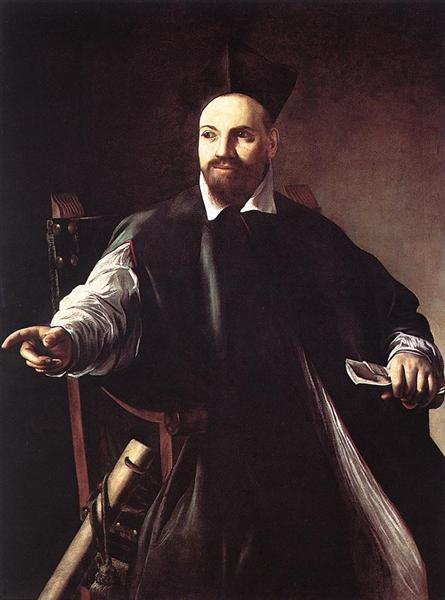Description
The painting "portrait of maffeo barberini", made in 1598 by the master From the Michelangelo Claroscuro Merisi da Caravaggio, it represents a milestone in the history of the portrait and a testimony of the virtuous use of realism by this innovative artist. Maffeo Barberini, who would later become the Urban Pope VIII, is represented with an impressive sense of presence and authority, a recurring theme in Caravaggio's art, which masterfully captures the essence of the individual through an intimate perspective.
From the first glance, it is observed that Caravaggio uses its characteristic use of chiaroscuro to create a dramatic atmosphere. The lighting focuses on the cardinal's face, illuminating its features with almost sculptural clarity that contrasts markedly with the dark background. This technique not only highlights the central figure, but also challenges the viewer, forcing him to concentrate his attention on the humanity of Maffeo Barberini, moving away from ideals idealized to present a more authentic image. Cardinal's skin is modeled with a subtle glow, which feels almost tactile, while the shadows surrounding its figure seem to absorb light intentionally, creating a halo of introspection.
The composition is rigorously balanced. The cardinal appears dressed in a subtle but elegant habit, which reinforces both his status and his connection with the clerical clothing of the time. The frontality of his pose, combined with the direction of his gaze, establishes a direct relationship with the viewer, suggesting a confidentiality that is provocative and captivating. The slight inclination of his head also adds a complexity to the representation of his character, suggesting an active and contemplative mind.
A fascinating aspect that can be highlighted in this work is the hidden symbolism in the choice of the colors used. The red of his clothing, which can evoke both the blood of the martyrs and the richness of religious power, is found in harmony with the gloomy background that emphasizes the solemnity of the portrait. These colors are not merely decorative; They are loaded with meanings that reflect the duality of human nature and the public life of the portrayed. The combination of elegance and sobriety in its representation can be interpreted as a reflection on its future leadership and influence position in the Church.
Caravaggio's work is often associated with a radical change in the art of his time, moving away from manierist conventions towards a more alive and psychological observation of the subjects. His ability to capture the essence of his models, his complexities and his contradictions, places him as a pioneer of realism. Contemporary works such as "The call of San Mateo" or "Judith and Holofernes" also reflect this innovative approach to the human figure and emotional narratives.
"Maffeo Barberini portrait" is not only a testimony of the undisputed talent of Caravaggio, but also a precursor to modern portrait, where individuality and psychological play a fundamental role. This work invites the viewer to contemplate not only the image of the cardinal, but also the tumultuous social and cultural context of the late 16th century, in which the figure of the cleric and the dynamics of power were experiencing deep transformations. In summary, this painting encapsulates Caravaggio's brilliance to unite technique, emotion and meaning on a single canvas, ensuring its place in the Canon of Western art.
KUADROS ©, a famous paint on your wall.
Hand-made oil painting reproductions, with the quality of professional artists and the distinctive seal of KUADROS ©.
Reproduction service paintings With a guarantee of satisfaction. If you are not completely satisfied with the replica of your painting, we refund your money 100%.

